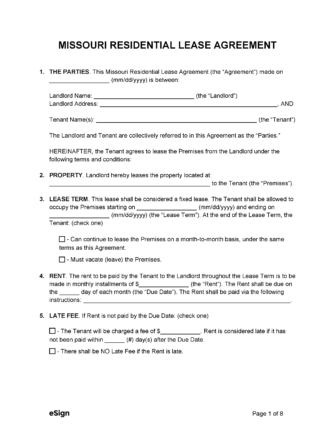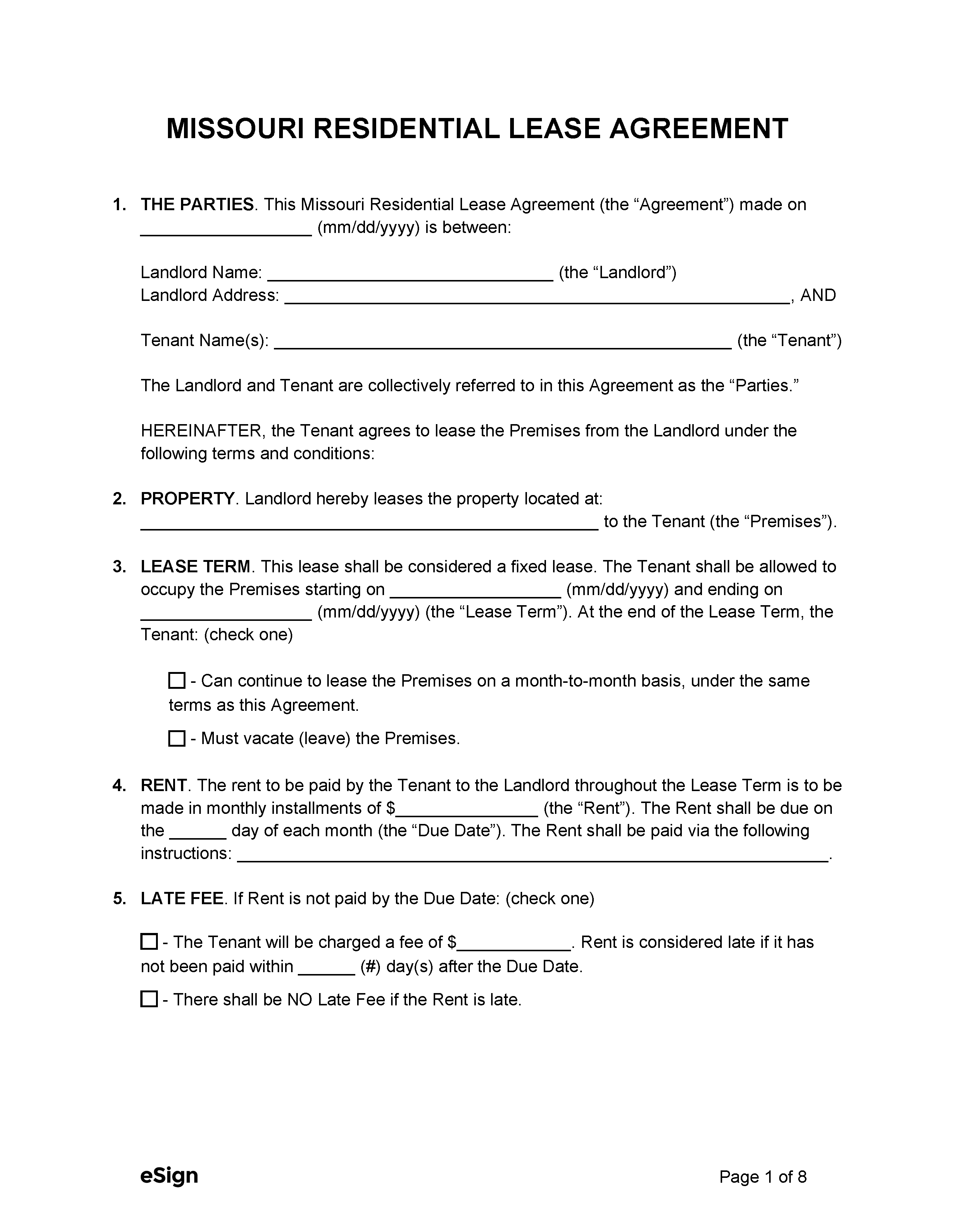Required Disclosures (3)
- Lead-Based Paint Disclosure (PDF) – If a residential rental unit was built prior to 1978, landlords must provide tenants with a disclosure notifying them that the premises may contain traces of lead-based paint.[1]
- Methamphetamine Production – If the landlord knows that a rental property was used to produce methamphetamine, they must disclose this detail to the tenant in writing.[2]
- Names and Addresses – The names and addresses of the property manager and the owner or the owner’s representative must be provided to all tenants.[3]
Rent Grace Period
Unless a different arrangement is agreed to in the lease, there is no required grace period for rent payments.
Landlord Resources
- Landlord-Tenant Actions – Tile 36, Ch. 535
- Landlord and Tenant – Title 29, Ch. 441
- Handbook (Guide) – Missouri’s Landlord-Tenant Law

